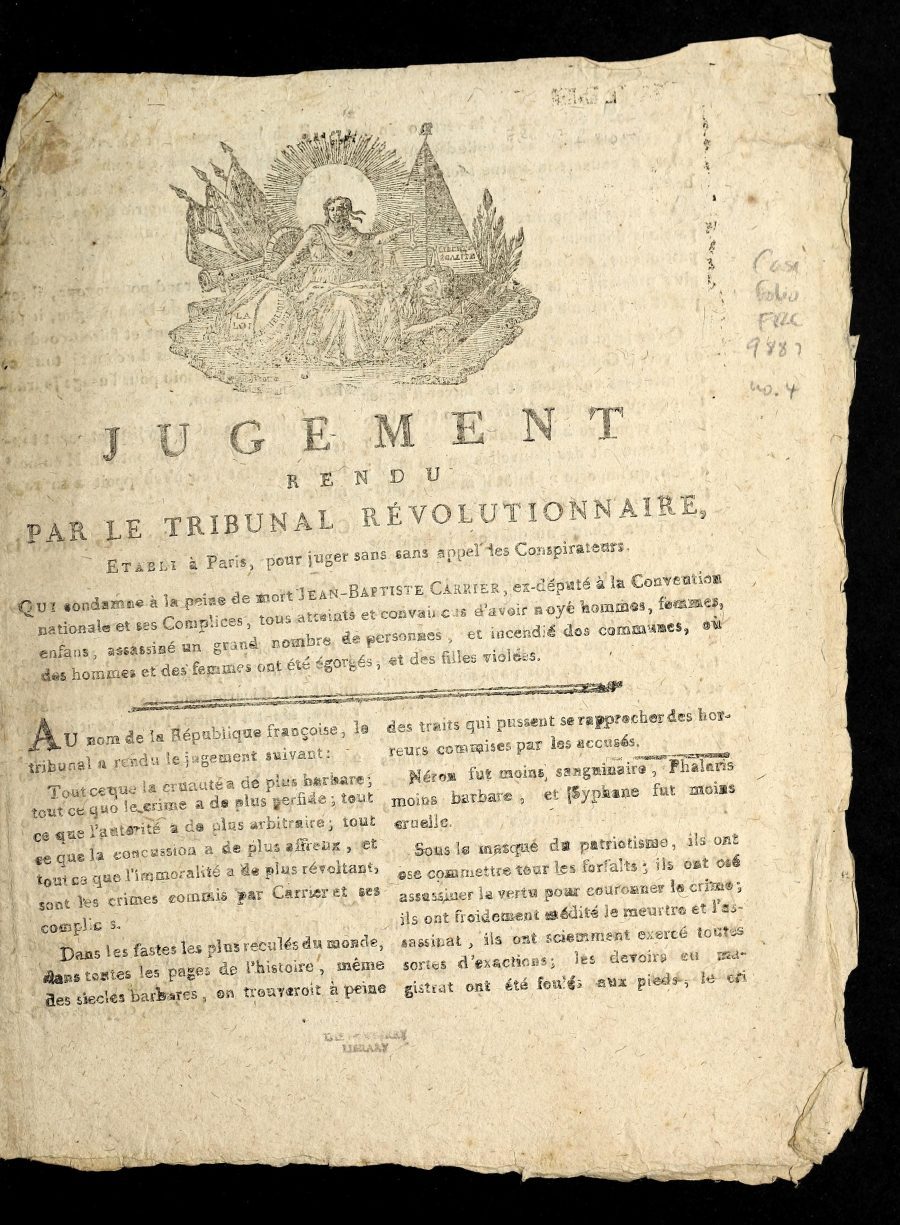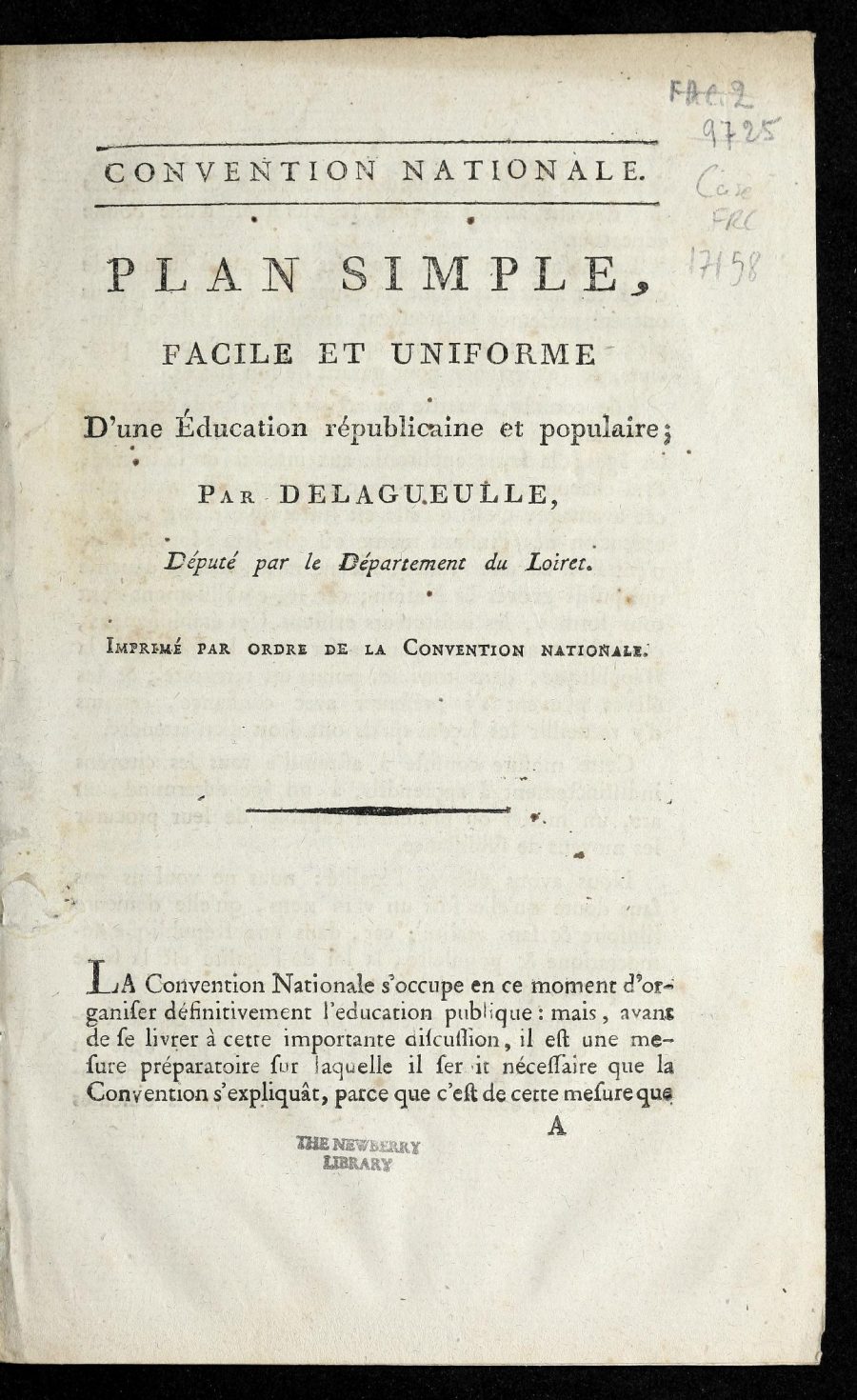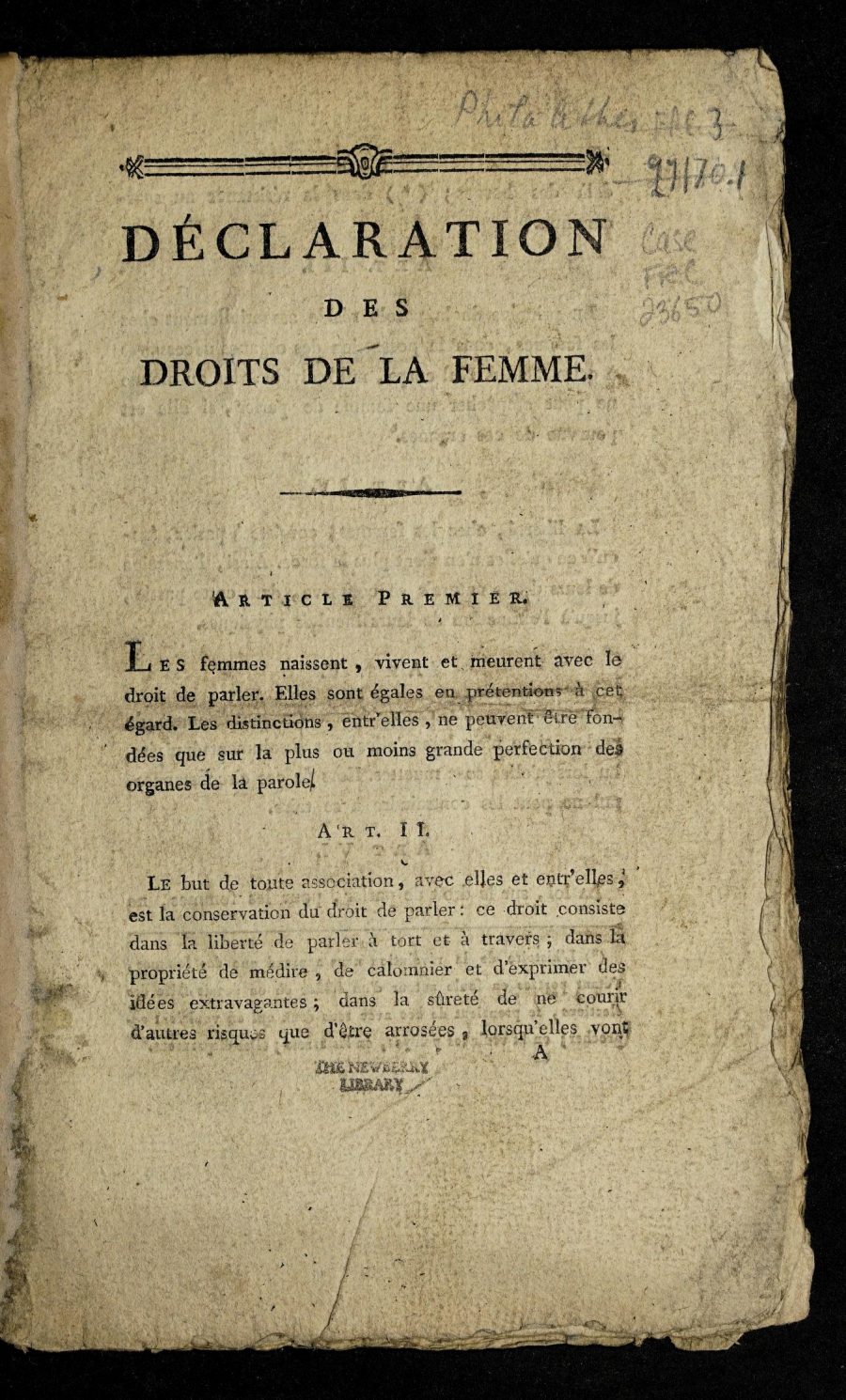
“What other solution but revolution?” asks Jonah Walters of the conditions for most of the population in late-18th century France. The majority lived in abject poverty; “the economic subjugation in the countryside was profound.” The urban workers—or sans-culottes—fared little better. “The clergy and nobility,” on the other hand, “comprising about 1.6 percent of the population, were doing just fine—most nobles lived in extreme opulence.” This outline sketches the barest context for the resentment that fueled the violence of the French Revolution and the thousands of executions eventually carried out by the Revolutionary Tribunal.
Lawyer and orator Georges Danton, who had argued forcefully for the killing of Louis XVI, proposed the Tribunal, in fact, as a means of stemming terror. “I shall go so far as to say,” he declared, “that if a tribunal had been in existence” in the years between 1789 and 1793, “the people, who have been so often and so cruelly rebuked for the actions of these days, would not have covered them with blood.” He advocated that the tribunal “be terrible in order that the people may be spared the necessity of being terrible.” The following year, Danton himself was beheaded, accused of leniency and self-indulgence.
Like his contemporaries Robespierre and Marat, Danton’s story illustrates the revolutionaries’ eloquent idealism and their commitment to the execution of royalists, counterrevolutionaries, and thousands of accused criminals as a means of remaking the nation and fully destroying the Ancien Régime. Kingston University’s Marisa Linton sums up the political crisis:
The French went almost overnight from being an absolute monarchy to a political system in which the will of the people replaced that of the king. In the absence of traditions of parliamentary rule, the French fell back on universalist abstract principles and Enlightenment rhetoric which were to prove increasingly divisive and leave no space for legitimate opposition. In this climate, all political rivals had the potential to be denounced as conspirators against popular sovereignty.
As in the American Revolution a few years earlier, these debates took place in public via speeches, periodicals, and pamphlets, which were printed by the tens of thousands. Chicago’s Newberry Library French Revolution Collection houses on the Internet Archive “more than 30,000” such pamphlets and “more than 23,000 issues of 180 periodicals published between 1780 and 1810…. The collection represents the opinions of all the factions that opposed and defended the monarchy during the turbulent period between 1789 and 1799 and also contains innumerable ephemeral publications of the early Republic.”

Much of the impressive Newberry collection, “among the most comprehensive in the world,” has been digitized and made freely available via the French Revolution Pamphlets Digital Initiative. Additionally, the Newberry has an open project for translating these pamphlets into English “in order to broaden access, aid classroom instruction, and support scholarship.” The overwhelming majority of the materials are, of course, in French, but some few are also in Latin and other languages.
The pamphlet at the top is one of several translated by the students of DePaul University Professor Pascale-Anne Brault. This document announces the verdict of the Revolutionary Court against Jean-Baptiste Carrier, a former deputy of the National Convention who stood accused of horrific atrocities in the commission of his duties, including “drowning men, women, children” and “assassinating a large number of people and burning towns, where men and women had their throats cut and girls were raped.” The judgment claims that “Nero was less bloodthirsty” than Carrier and his accomplices.

Further up, we see the first page of a pamphlet written by René Louis Delagueulle, a member of the National Convention, detailing plans for “a Republican Education of the People.” Delagueulle begins his proposal with a set of justifications, among them the need for full employment. “This measure equally obliges all citizens to learn,” he writes, “at a set age, an art, a trade or a profession capable of procuring them the means of subsistence. We have decreed equality: we wish it not to be an empty name, that it remain illusory & without reality; for in a democratic & popular Republic, the law of equality is the only law that can bring about common happiness.”
Just above, see a pamphlet titled “The Declaration of the Rights of Women,” penned in 1792 by an anonymous collective of female French citizens writing under the pseudonym Philaletes (Greek for “lover of truth”). The pamphlet consists of seventeen articles enumerating the rights of free speech for French women. “Women are born, live, and die with the right to speak,” states the first article. “They are equal in their ambition in this regard.” The document ends with a “Dedication Epistle to Female Citizens,” which begins, “for too long the Assemblée Nationale has made you wait for the declaration of your rights; it is essential and urgent that they be proclaimed.”
These fascinating documents represent just a tiny sampling of the thousands of pamphlets available, though most of them remain to be translated into English. You can volunteer to help with the translation initiative here. And enter the enormous archive of nearly 40,000 pamphlets, organized by year, subject, creator, collection, and language, here.
Related Content:
14,000 Free Images from the French Revolution Now Available Online
Josh Jones is a writer and musician based in Durham, NC. Follow him at @jdmagness


Leave a Reply